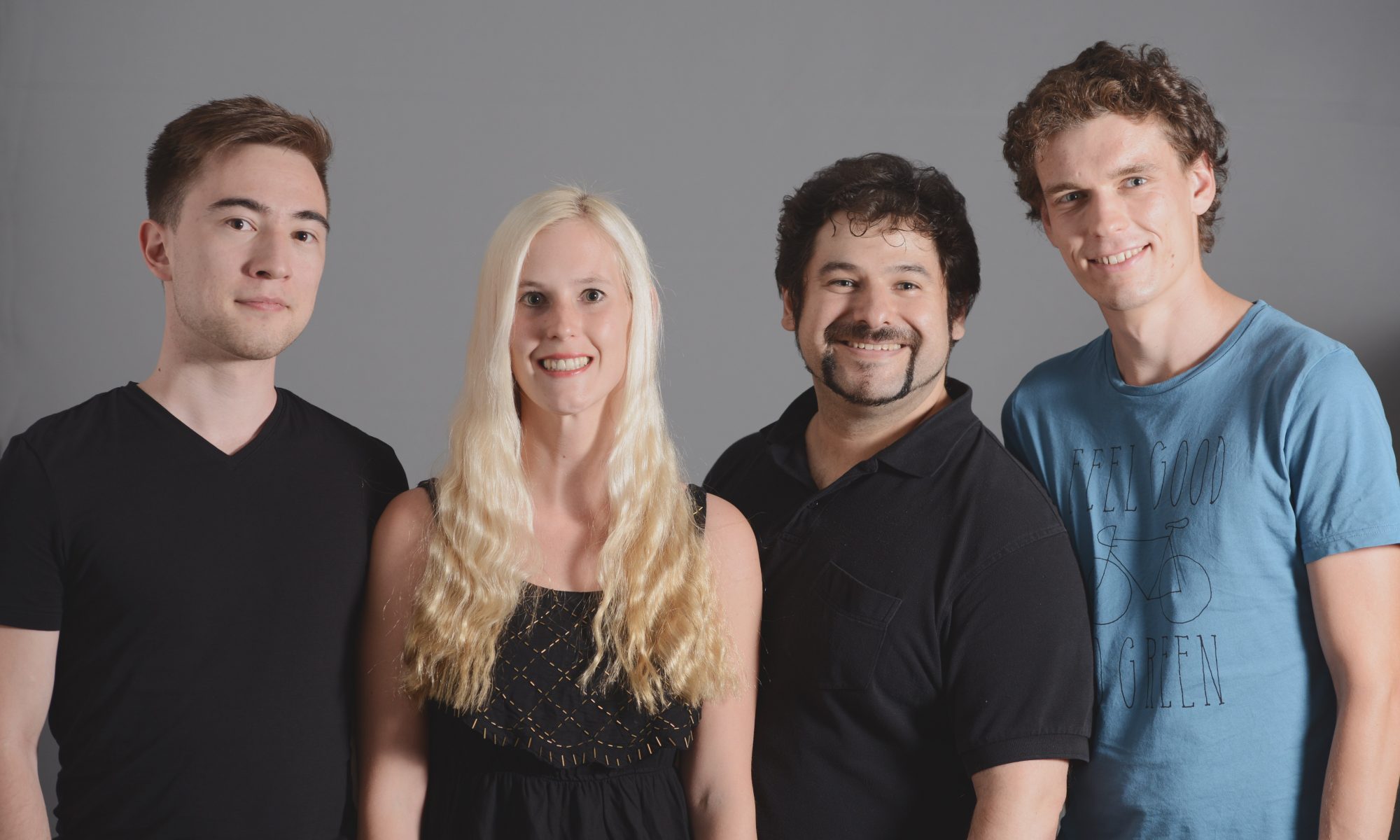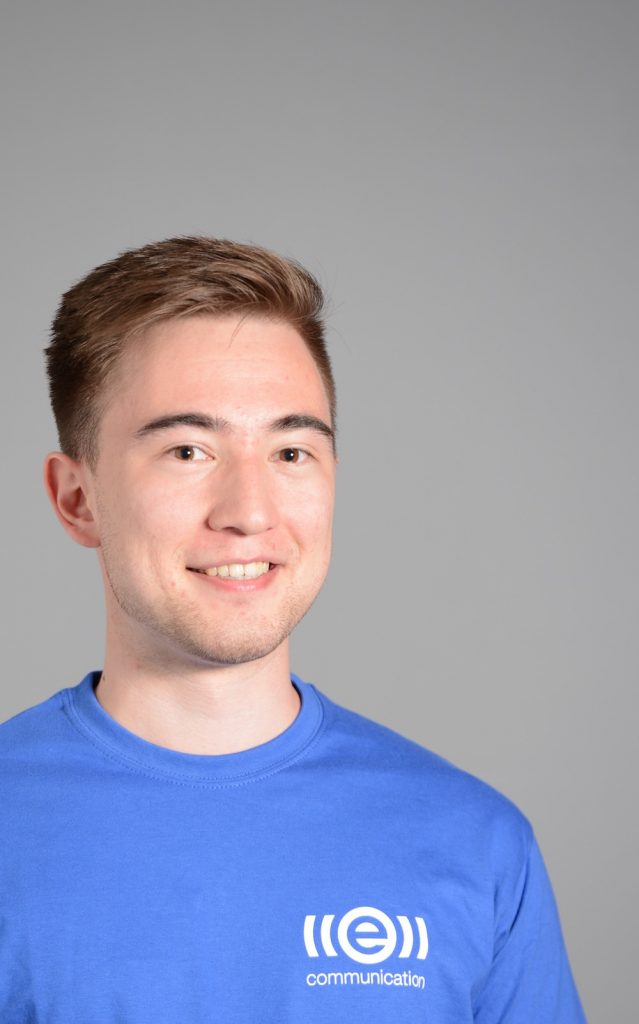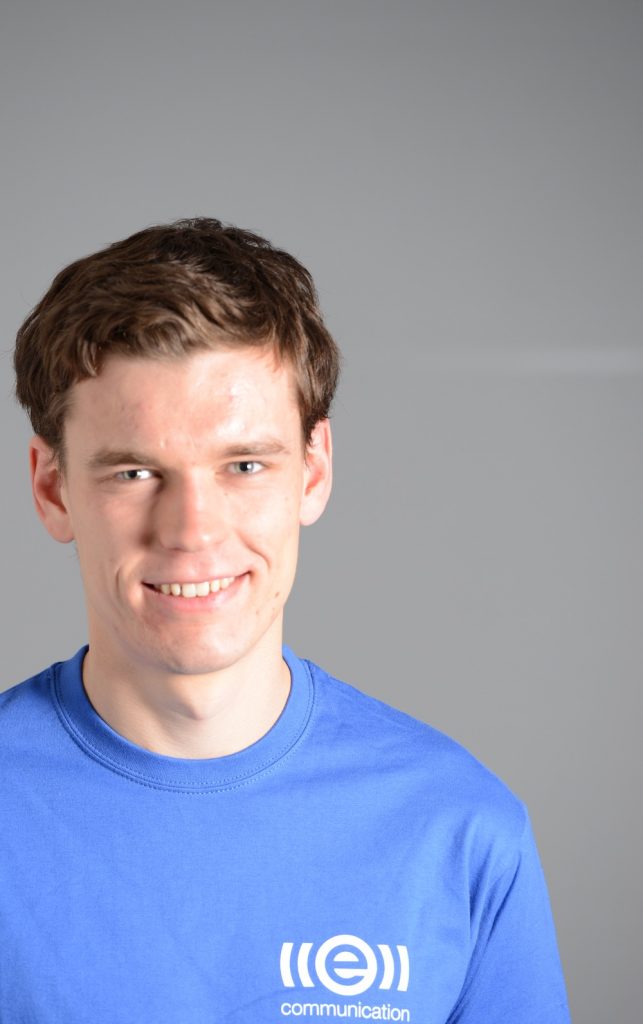During this years “Wissenschaftsnacht” our research group presented our research to the open public. The room was packed although we were schedulded at 11:15 P.M.
You can see the talk in the following youtube clip.

„Jeder hat das Recht, seine Meinung in Wort, Schrift und Bild frei zu äußern und zu verbreiten und sich aus allgemein zugänglichen Quellen ungehindert zu unterrichten. Die Pressefreiheit und die Freiheit der Berichterstattung durch Rundfunk und Film werden gewährleistet. Eine Zensur findet nicht statt.“ (Art. 5 Abs.1 Satz 1 Grundgesetz).
Durch die Digitalisierung von Kommunikationsmedien und Social Media hat sich unser Umgang mit Medien dramatisch verändert. Um der Informationsflut im Internet Herr zu werden, setzen digitale Medienanbieter auf Empfehlungssysteme, die Inhalte für Nutzer personalisiert aufbereiten. Erstmalig greifen Algorithmen in den öffentlichen Diskurs ein. Ein befürchteter Effekt im Dreiklang zwischen Nutzern, sozialen Medien und Empfehlungssystemen ist die Filterblase. Sie bewirkt, dass Nutzer nur noch Inhalte sehen, die ihrem Geschmack entsprechen und keinen Zugang mehr zur ungefilterten Meinungsdiversität der Bevölkerung haben. Durch diese informationelle Segregation wird Meinungsbildung nachhaltig beeinflusst (verfärbt, verfälscht, verzerrt) und führt zu Polarisierung von Meinungen. Die Identität der Urheber von Meinungen in sozialen Medien ist für Nutzer nur schwer zu überprüfen. Sogenannte Social Bots sind Computerprogramme im Social Web, die sich als Menschen ausgeben. Der Entwickler entscheidet, wie sich dieses Programm am Diskurs beteiligt, wie häufig, wie nachdringlich und wie ausdauernd. Social Bots werden eingesetzt, um den öffentlichen politischen Diskurs gezielt durch Meinungsmache, Demobilisierung und Propaganda zu beeinflussen. Zensur benötigt nicht länger die Unterdrückung von Meinungsäußerung, Zensur geschieht im Web 2.0 durch Überflutung mit ungewollter und falscher Information – mit Fake News. Das Projekt Digitale Mündigkeit wird sich mit der Frage beschäftigen, wie der Meinungsbildungsprozess in sozialen Medien in der Interaktion aus Mensch, Empfehlungssystem und Social Bots beschrieben, modelliert und vorhergesagt werden kann. Methodisch wird Agentenbasierte Modellierung eingesetzt, um emergentes Verhalten komplexer Systeme aufgrund individuellen Verhaltens sichtbar zu machen. Es ist ein Werkzeug zum Begreifen nichtlinearer Prozesse, in denen viele Beteiligte gleichzeitig wirken. Für eine phänomenologisch hochwertige Modellierung bedarf es der interdisziplinären Zusammenarbeit und der Kombination soziologischen, psychologischen, kommunikationswissenschaftlichen und informatorischen Wissens. Im Projekt „Digitale Mündigkeit“ wird die Methodenentwicklung für die Modellierung der hybriden Meinungsbildung maßgeblich vorangetrieben. Das Projekt leistet einen Beitrag zur Sicherung der Demokratie und zur informationellen Selbstbestimmung der Internetnutzer, indem es ein Werkzeug bietet, Meinungsbildungsprozesse in hybriden sozialen Netzwerken sichtbar zu machen und empfindliche Kipppunkte im öffentlichen Diskurs (anhand von Modellparametern) identifiziert, die in qualitativ andere, demokratiegefährdende Systemzustände führen können (Polarisierung, Extremisierung, Xenophobie, Homophilie).
Weitere Informationen zur Förderrichtlinie finden Sie unter:
http://graduiertenkolleg-digitale-gesellschaft.nrw/
During this years “Wissenschaftsnacht” our research group presented our research to the open public. The room was packed although we were schedulded at 11:15 P.M.
You can see the talk in the following youtube clip.
From September 17 to 21 Laura Burbach participated in the 4th Aachen International Summer School. Interesting Topic of the Summer School was „Introduction to Structure Equation Models (SEM) and Measurement Theory„. Laura learned much about the basics of designing, estimation and interpretation of SEM-models and how to build a SEM-model with the software LISREL.

Die Mitarbeitenden der Nachwuchsgruppe „Digitale Mündigkeit“ können erste Erfolge nachweisen. So wurden zwei Beitrage auf der 10th International Conference on Social Computing and Social Media eingereicht und akzeptiert. Darüberhinaus wurde ein Artikel im Journal „Energy Policy and Social Sciences“ akzeptiert. Näheres finden sie dazu unter Publikationen auf dieser Webseite.
Mit Laura Burbach nimmt ein Mitglied der Nachwuchsforschungsgruppe Digitale Mündigkeit an einer Summer School zum Thema Modelle in der realen Welt teil, in der Agentenbasierte Modelle entwickelt und mithilfe empirischer Daten validiert werden. Die Summer School findet vom 13. bis 17. August 2018 in Växjö in Schweden statt. Wir sind gespannt, was sie von der Summer School berichtet.

Das Projekt „Digitale Mündigkeit“ adressiert Themen an der Schnittstelle zwischen Mensch und Technik. Um dieser Komplexität Rechnung zu tragen, werden die Fragen interdisziplinär bearbeitet. Das Team ist dementsprechend divers besetzt und deckt Bereiche wie Bildungs- und Wissensmanagement, Kommunikationswissenschaft, Technik-Kommunikation, Informatik und E-Technik ab.

Laura Burbach ist wissenschaftliche Mitarbeiterin am Lehrstuhl für Communication Science und am Human-Computer Interaction Center (HCIC). Sie hat an der RWTH Aachen den Zwei-Fach-Master Sprach- und Kommunikationswissenschaft und Bildungs- und Wissensmanagement studiert. In ihrer Masterarbeit beschäftigte sie sich mit dem Thema Life-Logging-Nutzerprofile und Motivation.
Seit 2018 ist sie Teil der Nachwuchsforschergruppe Digitale Mündigkeit und befasst sich damit, wie Meinungsausbreitung in sozialen Medien stattfindet. Aktuell untersucht sie, ob und inwiefern verschiedene Empfehlungssysteme von Nutzern sozialer Medien akzeptiert werden.
Link zum Google Scholar Profil

André Calero Valdez ist Senior Researcher am Lehrstuhl für Communication Science und Human-Computer Interaction Center der RWTH Aachen University und Leiter der Nachwuchsgruppe „Digitale Mündigkeit„.
Er hat an der RWTH Aachen Informatik studiert, mit den Vertiefungsgebieten Software Engineering und Psychologie. Aufgrund seines hervorragenden Studienabschlusses wurde ihm ein Promotionsstipendium durch die RWTH gewährt. In seiner Dissertation beschäftigte sich André mit der nutzerzentrierten Entwicklung und Evaluation eines Small-Screen-Devices für Diabetes Patienten.
Seit 2013 arbeitet André als Post-Doc an der RWTH Aachen University und befasst sich mit der Schnittstelle von Algorithmen und Menschen in unterschiedlichen Anwendungesbreichen. Er arbeitet in den Bereichen empirische Sozialforschung, Technologie-Akzeptanz, eHeatlh, Industrie 4.0, Empfehlungssysteme, Informationsvisualisierung und soziale Medien.
Seit 2014 ist André Gastprofessor an der Medizinischen Universität Graz an der HCI-KDD Gruppe bei Herrn Prof. Dr. Andreas Holzinger.
Link zum Google-Scholar Profil Link zur akademischen Webseite

Patrick Halbach ist wissenschaftlicher Mitarbeiter am Lehrstuhl für Communication Science und Human-Computer Interaction Center der RWTH Aachen University. Er hat an der RWTH Aachen den interdisziplinären 2-Fach Master Technik-Kommunikation mit Informatik studiert. In seiner Abschlussarbeit untersuchte er den Einfluss von Social Media und Empfehlungssystemen auf die Meinungsbildung in der digitalen Gesellschaft.
Seit Juni 2019 ist er Teil der Nachwuchsforschergruppe Digitale Mündigkeit und befasst sich mit Makrofaktoren der Meinungsbildung im Internet und vor allem in sozialen Netzwerken. Er konzentriert sich dabei aktuell auf die Untersuchung des Einflusses von Strukturen und der Besonderheiten sozialer Netzwerke im Internet.
Link zum Google Scholar Profil

Johannes Nakayama arbeitet als studentische Hilfskraft am Lehrstuhl für Communication Science und am Human-Computer Interaction Center an der RWTH Aachen University. Er hat seinen Bachelorabschluss an der RWTH im Fach Technik-Kommunikation mit Beifach Informatik erworben und studiert zurzeit im konsekutiven Masterstudium weiter.
Link zum Google-Scholar Profil

Nils Plettenberg ist studentische Hilfskraft am Lehrstuhl für Communication Science und Human-Computer Interaction Center der RWTH Aachen University. Er hat an der RWTH Aachen den Zwei-Fach-Bachelor Technik-Kommunikation mit Grundlagen der Elektrotechnik studiert. Zurzeit befindet er sich in den letzten Zügen des Bachelors Elektrotechnik, Informationstechnik und Technische Informatik.
Link zum Google Scholar Profil